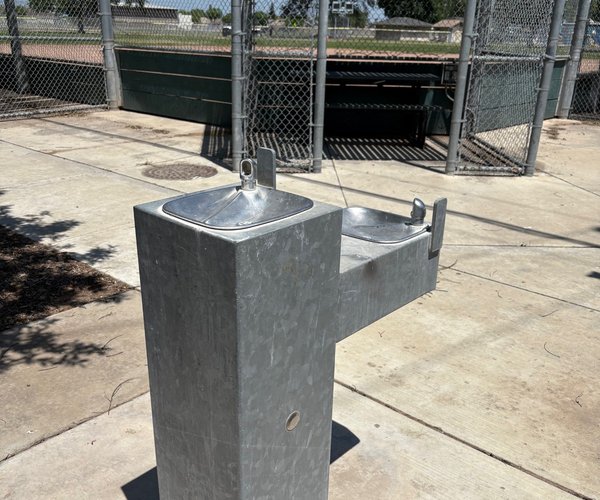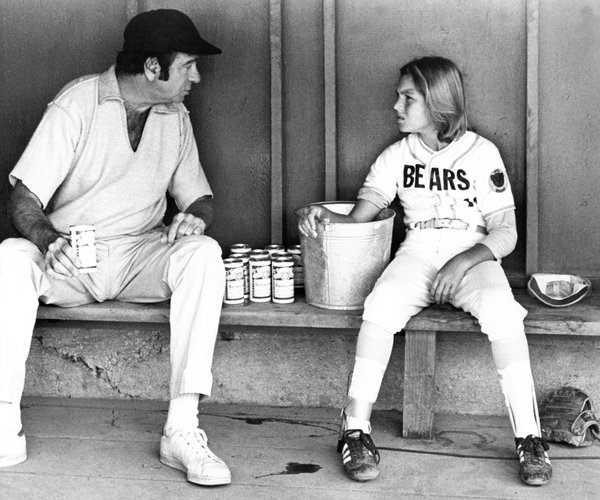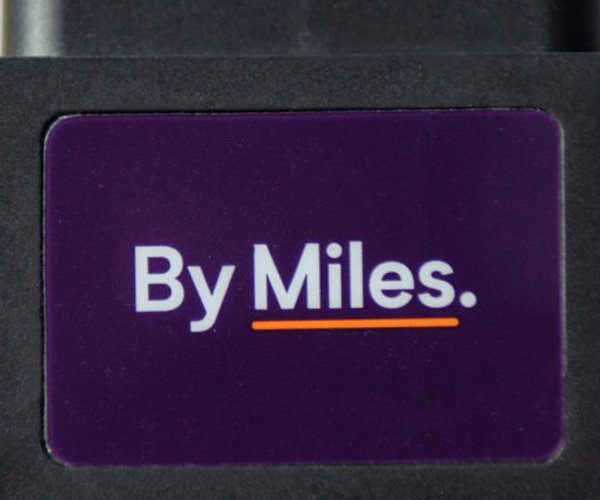Meal service.
Secure shelter.
The ability to stay cool without selling your soul to PG&E.
Clean bathrooms.
Showers.
Food and care for your four-legged friends.
Clothing.
And it is at no-cost.
Does that sound inhumane to you?
It does to some homeless advocates.
The reason is simple. You have to agree to rules to access it.
No drugs.
No booze.
You know the routine.
What the City of Manteca offers at 555 Industrial Park Drive is not Club Med.
But it’s a far cry from a makeshift shelter on a 105-degree day in a dirty, weed-infested field.
Some who believe the Supreme Court ruling designed to change the basic rules of olaying Whack-a-Mole on steroids — communities trying to humanely address the homeless situation — is akin to treating the homeless like lepers are becoming unhinged.
Then there are those who queue up the soundtrack from the 1950s TV western show “Rawhide” and celebrate what they believe is carte blanche to harass and run homeless out of the city.
Both are extreme positions.
Just like the far left and the far right.
The court ruling regarding the City of Grants Pass in Oregon’s ability to control “camping” to protect public places wasn’t made in a vacuum.
Other court rulings still stand that essentially say government can’t treat being homeless as a crime per se.
The assumption, of course, is the proverbial door has been opened to round up all the homeless and jail them.
The ruling, when wedded with laws and other court decisions that still stand, essentially carved out a middle ground.
Something that neither those who essentially push for scared cow status for the homeless nor those that what to tar and feather the homeless want.
If you don’t think that is case then why did people like Gov. Gavin Newsom — who have a political tendency to slam any Supreme Court decision that breaks along the perceived ideological lines of the justices — embrace the ruling?
Strike that. There were more than a few “liberal governors” as well as cities like Seattle ruled by social justice coalitions that advocated through friends of the court briefs for the position the judicial majority ultimately took.
As such, they know firsthand that carrots without a stick to enforce rules essentially for order in a civilized society are extremely limited in a lot of situations including addressing the homeless crisis.
The homeless have a choice.
If they don’t want to be constantly cited for following anti-camping laws that apply to everyone including their homeless status, they can do one of two things.
Either access the homeless shelter and services or move on.
But what if they are drug users, boozers, mentally ill or a combination therefore?
Public intoxication using either drugs or booze is a crime.
And while it is intertwined with the homeless issue, it is a separate crime.
It can be addressed through court-ordered treatment.
As for being mentally ill, the problem lies with spineless politicians who hide behind a decision in the 1960s regarding the legal rules of mental health holds.
Legislatures have the power to craft laws that can meet court thresholds to address the problem. It isn’t easy.
California is slowly moving in the right direction after giving counties more flexibility in trying to essentially force mentally ill among the homeless into treatment programs.
Manteca is navigating a middle-of-the-road course.
And it is doing so not because it is cuddling the homeless or being mean to the homeless.
It’s because it is the path with the best possible outcome.
And that best possible outcome isn’t to eliminate homelessness that has plagued mankind since the dawn of civilization.
Instead, it is to at the very least stop it from getting worse and ultimately reduce it.
That can’t be done if the ranks of the homeless isn’t dominated by low-hanging fruit.
The low hanging fruit are those that readily, or at least with minimal nudging, will accept help to get off the street and work toward supporting themselves.
Most are not.
The previous court ruling — decided by the 9th Circuit Court of Appeals and declined to be heard by the Supreme Court — that set the stage for dealing with the homeless was based on a lawsuit originating in Boise, Idaho.
The bottom line was the homeless couldn’t be forced to move when they were illegally camped if there was not a shelter bed available in an emergency shelter.
It was anything but crystal clear.
If a city had 200 homeless, 100 beds, and 10 of them vacant, did they have to find homeless willing to go first and fill those beds up before a homeless individual who refused to do so could be forced move on or be cited from a public place?
And of the city had no beds available but a designated area where the homeless could camp instead, would that suffice to be able to enforce anti-camping laws?
The Grants Pass decision cleared that up.
Grants Pass had homeless shelters but none of them were low-barrier.
Low barrier means essentially anyone who is homeless can stay.
There are minimal rules. And they don’t have to be clean in terms of sobriety with drugs or alcohol.
As such, that means the course Manteca is on — a high barrier navigation center that is not a drop-in shelter and works with the homeless to get them off the streets — won’t be legally dismissed as inadequate.
It also means once the current 50 beds are full, the city can offer the fenced-in grounds at 555 Industrial Park Drive with 24/7 security services as a place for the homeless to camp.
The city hasn’t wavered from its goal.
Manteca is working toward addressing quality of life concerns homelessness create for the entire community while at the same time helping improve the situation of the homeless.
It is the only course that makes headway.
Simply citing homeless won’t solve anything.
But it can be a tool into forcing the homeless into a course of action.
This column is the opinion of editor, Dennis Wyatt, and does not necessarily represent the opinions of The Bulletin or 209 Multimedia. He can be reached at dwyatt@mantecabulletin.com






